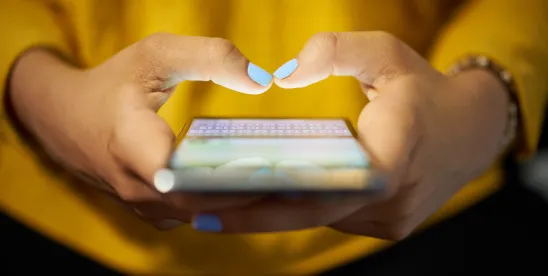In what could be a very short-lived victory for the plaintiff, the District of Massachusetts just adopted the Marks ATDS formulation and held that a text is a call. See Barton v. Temescal Wellness, LLC, No. 4:20-cv-40114, 2021 U.S. Dist. LEXIS 42211 (D. Mass March 8, 2021). The latter holding is likely on stronger footing – several circuit courts agree – but both issues are now squarely before the Supreme Court in Duguid. Which begs the question, why decide the issues at all, when the Supreme Court is poised to weigh-in within the next three months?
The allegations of the case are straightforward enough. The plaintiff allegedly received a few text messages from the defendant, via an ATDS, while her phone was on the DNC registry.
But the defendant took a rather creative approach, perhaps influenced by a line of questioning from the Duguid argument: is a text really a call?
The defendant appeared to do a decent job of claiming that Justice Ginsburg’s line from Campbell-Ewald that a text is a call is dicta. Ultimately, however, the court sided with First, Second, Ninth, and Eleventh Circuit’s in holding that a text is, in fact, a call.
More controversially, the court also adopted the Ninth Circuit’s ATDS definition from Marks. That is a bit surprising, given that the Supreme Court is poised to resolve the circuit split over the definition in Duguid during this term. And most commentators – me included – believe it likely that the Supreme Court will reject the Ninth Circuit’s formulation and instead require random or sequential number generation. You know, like the words of the statute expressly require.
And here’s where things could get a bit interesting, and where the court’s decision to forge ahead before Duguid is decided is a bit perplexing. When listening to Supreme Court argument, one of the main cues I listen for are ways the justices can avoid settling difficult decisions. Looking for an out, so to speak. Many times the Court will rely on mootness or other procedural deficiencies to send cases back. But occasionally, the Court will decide an issue completely separate from the main dispute but that otherwise terminates the appeal.
And in Duguid, a few justices latched onto just such an issue: whether a text is really a call under the TCPA. This line of questioning seemingly came out of nowhere, because courts and litigants largely viewed it as settled law that a text is a call. But the justices, of course, are not bound by the circuit court decisions and remain free to decide that a text isn’t a call after all.
Duguid thus presents two ways for the plaintiff’s victory to be undone. First, the Supreme Court could hold that a random or sequential number generator is required. That’s the most likely outcome. Second, the Supreme Court could throw another wrench into TCPAWorld and hold that a text is not a call. That’s far less likely, but not beyond the realm of possibility given the way the argument went down.
So for now, the plaintiff gets to enjoy a victory. But for how long? The Supreme Court will soon weigh in.




 />i
/>i

